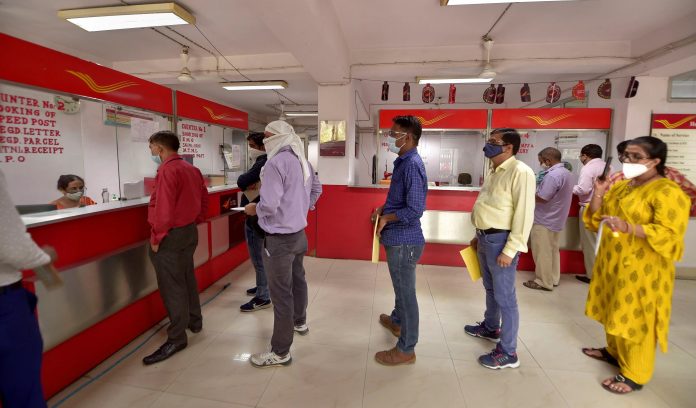Post Office SCSS: If we did not have to depend on someone else for money in old age, then life would have been better after retirement. For this it is necessary that hard earned money should be invested safely.
There is a tremendous scheme of Post Office. It provides safe and guaranteed return on investment. This scheme is Senior Citizen Saving Scheme. The most important thing about this scheme is that it is being run by the central government. In this, investors get tremendous returns on depositing money together, which is more than bank FD. Let us tell you that currently 8.2 percent interest is being given in this savings scheme, which also changes every quarter.
The scheme is very special for the elderly
Post Office SCSS is especially for those above 60 years of age. Along with this, this scheme is also for those people who have taken VRS. At present 8.2 percent interest is being given on this scheme. In this scheme, senior citizens can earn Rs 10,250 every quarter by depositing Rs 5 lakh in one go only from interest. In 5 years, only interest will earn up to Rs 2 lakh. Know the complete calculation here.
Post Office Senior Citizen Saving Scheme
Lump sum deposit: Rs 5 lakh
Deposit period: 5 years
Interest Rate: 8.2%
Maturity amount: Rs 7,05,000
Interest Income: Rs.2,05,000
Quarterly Income: Rs 10,250
Post Office SCSS has many benefits
This savings scheme is being run by the Government of India. It is considered one of the reliable and safe options for investment.
Under the Income Tax Act Section 80C, investors get the benefit of tax exemption up to Rs 1.5 lakh every year.
The account of this post office scheme can be transferred to any center in the country. Under the scheme, interest is paid every 3 months.
How to open an account for SCSS?
For this, a form has to be filled to open an account in any post office or government / private bank. A copy of 2 passport size photographs, identity proof and other KYC documents have to be submitted along with the form. The advantage of opening a bank account is that the interest earned on the deposit can be deposited directly into the bank account itself.















